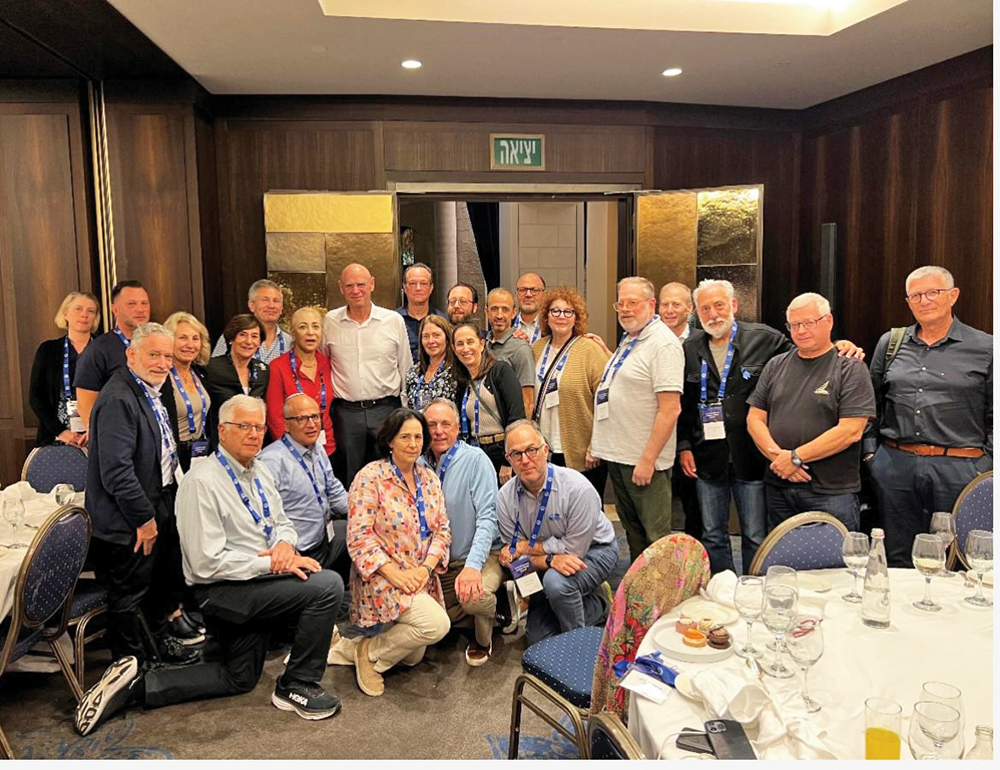
On October 22, Chief Executive Officer Diane Sloyer and President Michael R. Schlessinger
of United Jewish Federation of Greater Stamford, New Canaan and Darien participated in a 36-hour mission to Israel with other North American leaders.
Sloyer described: “The airport was a ghost town. Within minutes, we were in a van to Jerusalem. Our driver was both concerned for our safety and overwhelmed with gratitude that we made the trip to show our solidarity.
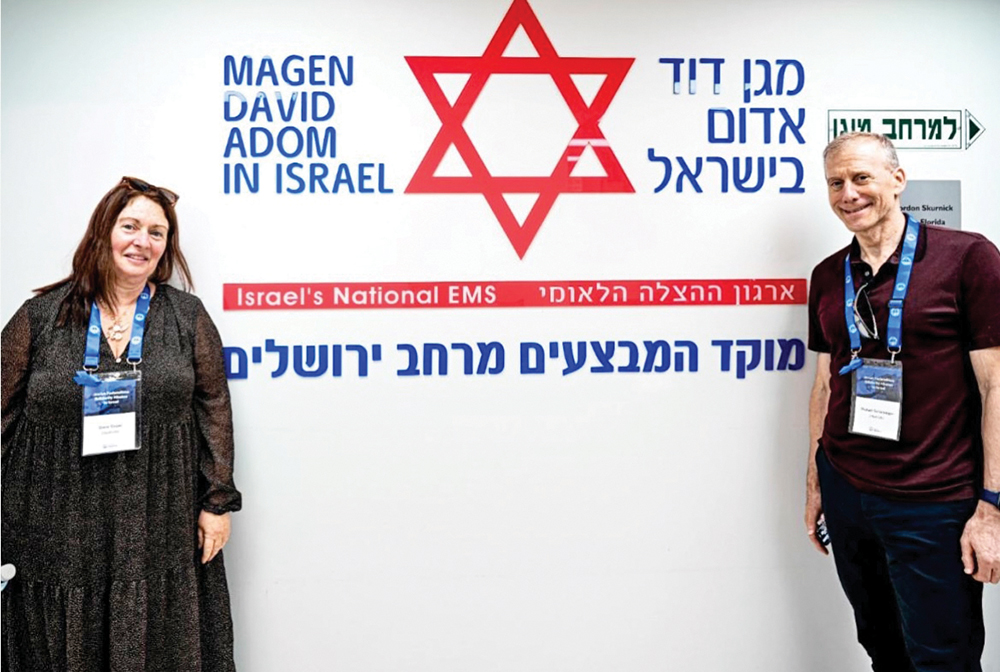
“When Jewish Federations of North America put together its first post-October 7 solidarity mission, Michael [Schlessinger] and I knew we needed to be there. We went to bear witness and say ‘Hineni’ on behalf of our community. Arriving on the heels of President Biden’s visit, we were greeted with an outpouring of gratitude and appreciation we didn’t deserve.”
Schlessinger added: “Some questioned why we joined this mission. We can’t do much to help, and the resources we necessarily consume will only be redirected away from more vital activities. I’m privileged to represent a special Jewish community in Stamford, New Canaan and Darien. I wanted to understand the mood in Israel, be knowledgeable about events on the ground, feel the unity of a recently divided nation and understand the peoples’ resolve to defend themselves.
“I wanted to bring our community’s outpouring of financial support and messages of solidarity to our brethren in need. I wanted to understand the path forward more clearly and help marshal the immense resources of the American Jewish community toward achieving that path. I want our local community to continue to support and inspire each other, to feel connected to Israel and our common heritage.”
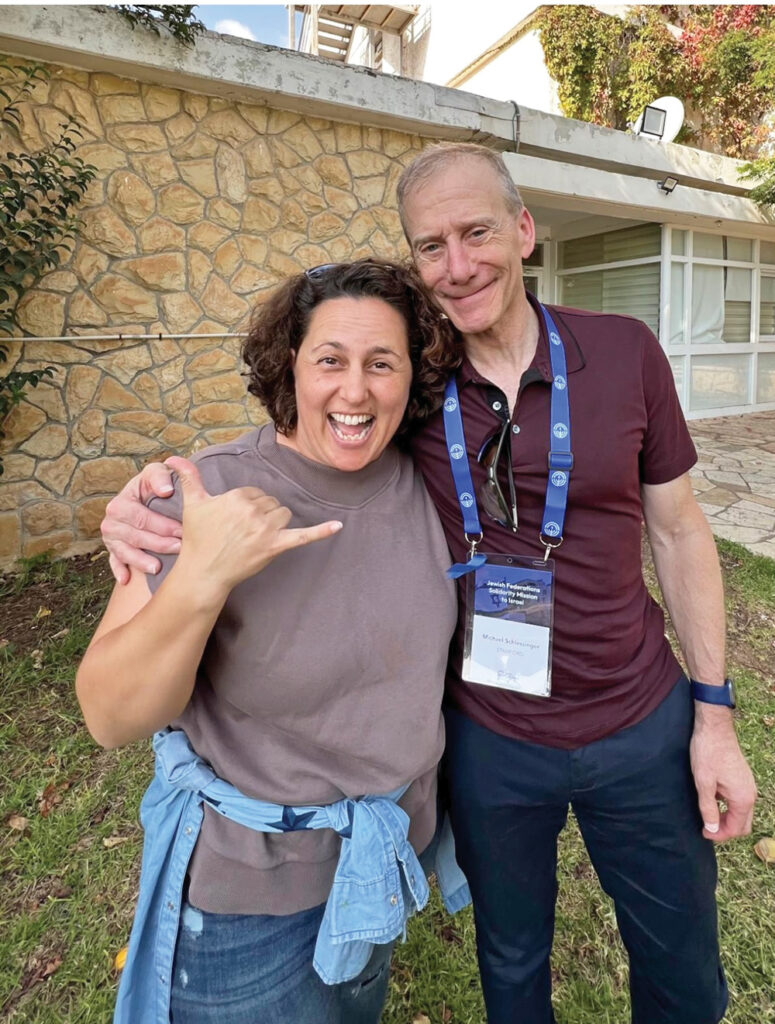
Their first stop for the two executives was Ma’ale Hachamisha in the Jerusalem Hills, where Kibbutz Zakim’s and Netiv Hasara’s displaced citizens were relocated. They met Shani from Kibbutz Zakim, close to the Gaza border. After hiding from terrorists, she drove her two children to safety around 9 p.m. on October 7, while her husband stayed to defend the kibbutz. “Shani’s indomitable spirit came through, though tempered by sadness for the friends she lost and uncertainty about her family’s future,” said Sloyer. “We asked her what it would take for her to feel safe enough to return to Zakim. She thought for a few long moments, before saying, ‘I don’t know, something major.’”
The rest of the first day included seeing their philanthropy dollars at work: Israel Trauma Coalition, Magen David Adom, Jerusalem Civil Command Center, the Nissan Nativ Acting Studio, American Joint Distribution Committee, and the Jewish Agency for Israel.
On the second day, the delegation met with family members of three hostages in Gaza: Aviva and Keith Siegel and Yarden Roman-Gat. The group then drove southwest to Ashkelon, a fast-growing city of 170,000 on the Mediterranean, a few kilometers north of Gaza.
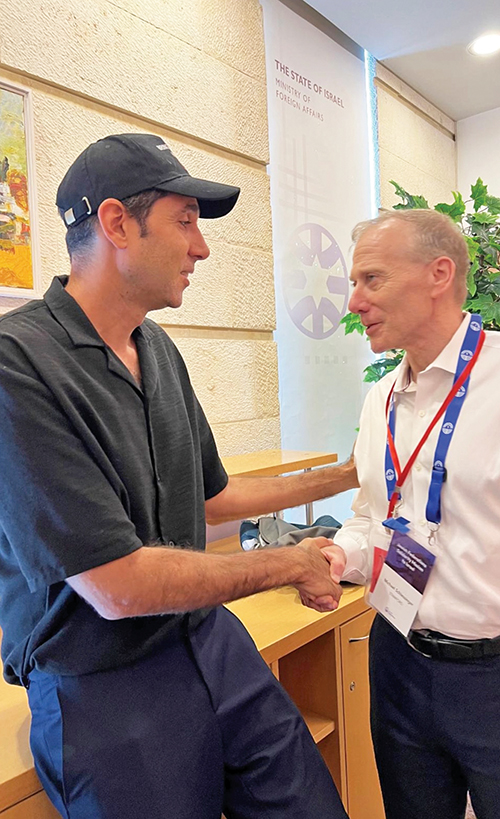
At Barzilai Hospital, which spontaneously became the October 7 triage center by virtue of its location, CEO Chezi Levy said, “civilian casualties started pouring in around 8 a.m. In three hours, more than 300 casualties arrived, with injuries unlike anything seen before, despite three decades of military service.” A Grad rocket hit the hospital at 3 a.m. that Sunday morning, extensively damaging above-ground walkways connecting two buildings and the prenatal unit. No lives were lost.
“This hospital’s rocket hit received much less attention outside Israel than the Gaza hospital rocket just days after,” Sloyer said. She also noted how Ashkelon is Baltimore Federation’s sister city. Within 24 hours of the attack, Federation funded 100% of the local authorities’ initial wish list.
At dinner, retired Major-General Noam Tibon described joining other retired senior IDF officers and Mossad agents racing to Gaza on the morning of October 7. Regarding the current war, he said, “We have no choice. It’s going to be ugly. This won’t be a month but many years to rebuild our society and the Zionist dream.”
Schlessinger recounted their Ministry of Foreign Affairs visit. “It was heartbreaking hearing hour-by-hour accounts of that awful day. Two families on the Israeli left, who devoted much of their lives to seeking peace with Palestinians, told us this war wasn’t about occupation or settlements, but fundamentalist jihad. We’re haunted by their plea to remember them, and make sure our community and political leaders don’t forget them.”
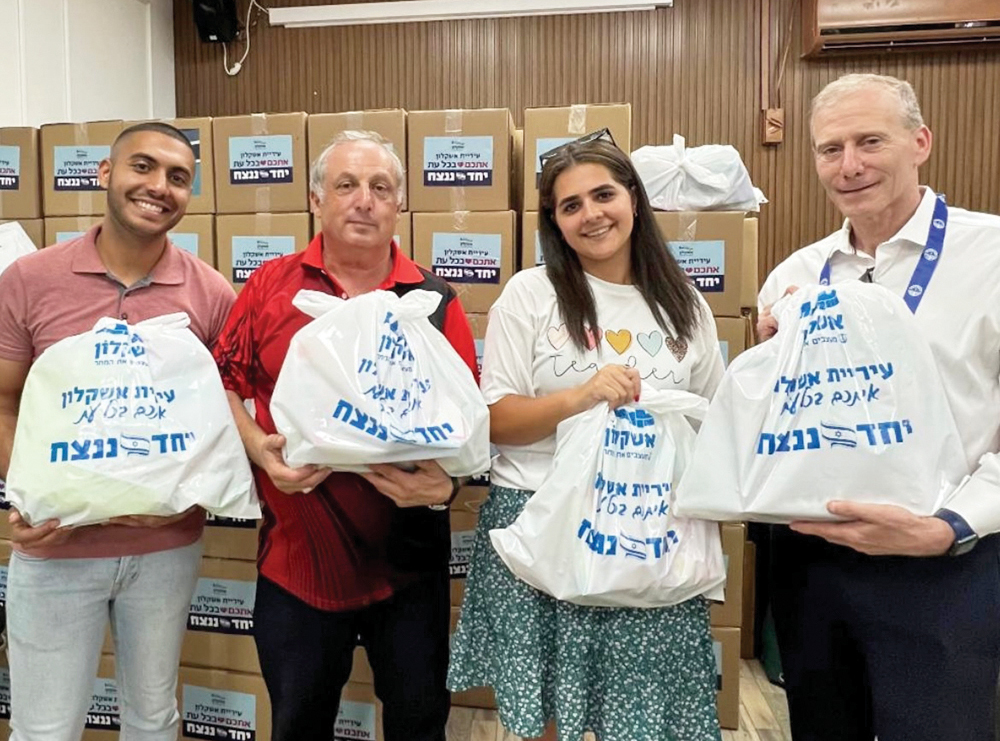
In closing, Schlessinger stated the mission’s takeaways. “The spirit of Israel is strong. We came to honor Israel’s heroes, but they thanked us instead. We came to console Israel’s mourners but they comforted us. We came to rally a nation that suffered a devastating blow, but they demonstrated more resolve and optimism than we could on our best day. Young soldiers, preparing for war, were inspiring and resolute.”
Sloyer summed up the experience: “I’ve never been prouder to be a Zionist.”











